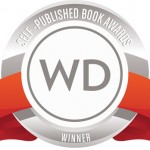 Also known as the logline or hookline (and not to be confused with an author’s tagline), the one-sentence pitch is important if you’re going to move your manuscript off your computer and into the hands of an agent or editor.
Also known as the logline or hookline (and not to be confused with an author’s tagline), the one-sentence pitch is important if you’re going to move your manuscript off your computer and into the hands of an agent or editor.
Rachelle Gardner reiterated what I’d heard before at the Maui Writers Conference and the San Francisco Writers Conference: it should be no more than 25 words in length.
But she also went into more detail. It can double as the first line in your query letter or the first sentence you use in your pitch to an agent at a conference. And it should include at least three of the following five characteristics:
- Character
- Choice, conflict, or goal
- What’s at stake
- Action
- Setting
She then gave some examples from two well-known books, as well as a book she agented:
“A boy wizard begins training and must battle for his life with the Dark Lord who has murdered his parents.” (Harry Potter and the Sorcerer’s Stone)
“In the south in the 1960’s, three women cross racial boundaries, risking their lives to begin a movement that will forever change their town and the way women view one another.” (The Help)
“Chaos is unleashed on a quiet coastal town when an unassuming crippled woman raises a young boy from the dead, unlocking a centuries-old curse.” (When Faith Awakes)
You can see that each of these examples include at least three of the five elements she listed, and while one does extend beyond 25 words, all pack the gist of their story into one sentence.
She said that the keys to composing an effective one-sentence pitch are:
1) Keep it simple (with only one plotline and 2-3 characters mentioned at the most).
2) Use strong nouns, verbs, and adjectives (I blogged more about this here and how it also applies to the first lines of novels. Check it out and vote on your favorite opening lines.)
3) Don’t pitch a theme, pitch what happens.
4) Make the conflict clear without hinting at the solution.
If you’re still fuzzy about how to compose a good, one-sentence pitch, she recommended the formulaic method espoused by fellow agent, Nathan Bransford here.
Originally posted 2010-06-01 11:17:08.
 This morning, I’d planned on posting my next piece in my Publishing’s Paradigm Shift series, but I’ll save it for tomorrow, since I have big news to share:
This morning, I’d planned on posting my next piece in my Publishing’s Paradigm Shift series, but I’ll save it for tomorrow, since I have big news to share:

